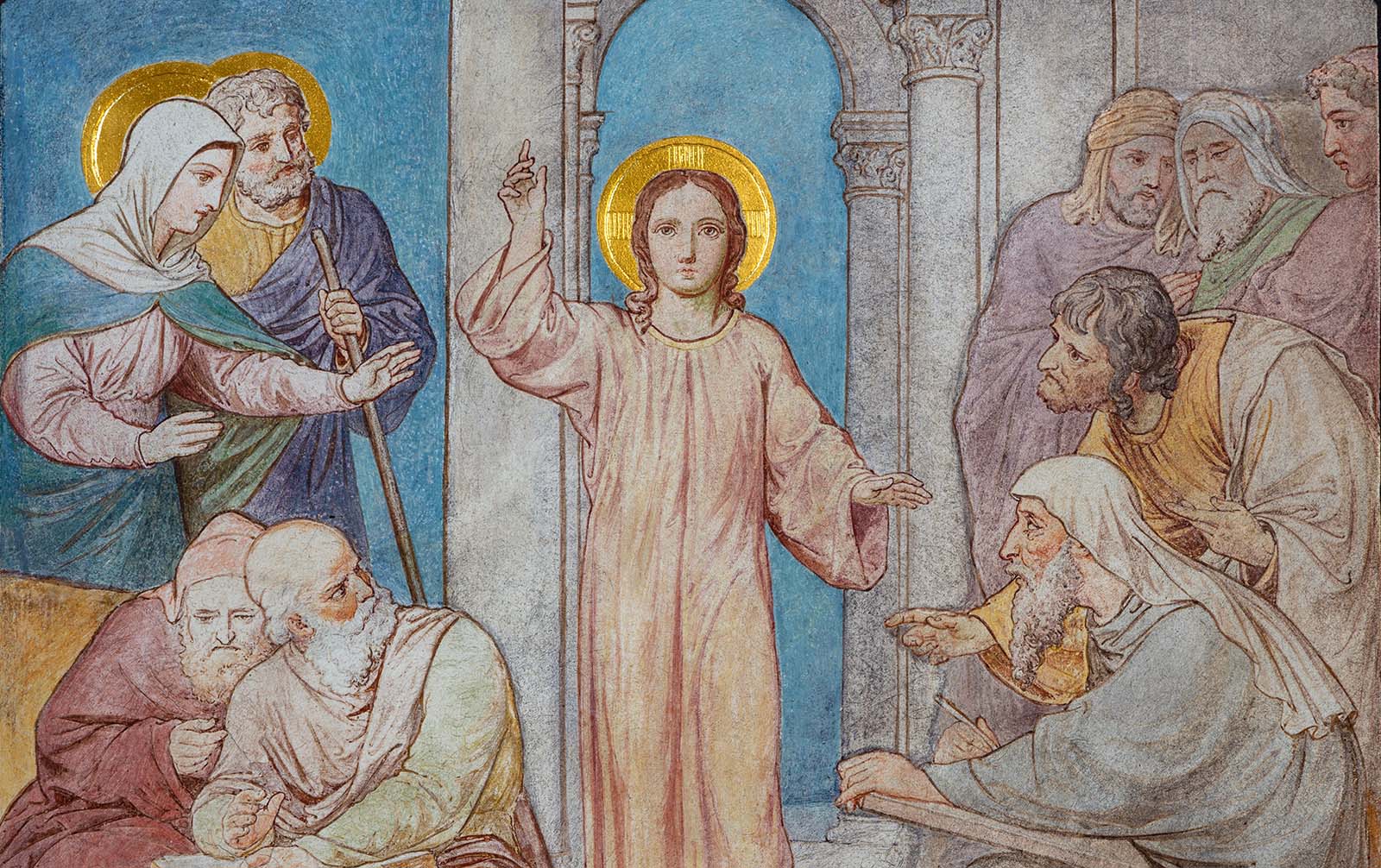Forming our conscience is key to living in Christ’s love, a “love that issues from a pure heart and a good conscience and sincere faith,” moving us to “wage the good warfare, holding faith and a good conscience. By rejecting conscience, certain persons have made shipwreck of their faith” (1 Timothy 1:5,18-19). To help us cultivate a good conscience and avoid “shipwrecking” our faith, the Catholic Church has built up a body of moral teachings based on God’s Word and his Creation. This moral teaching has a pedagogical progression that advances from parental admonishment to total, self-giving love.
In teaching a child right and wrong, parents often begin with the Golden Rule as the first moral principle: “Do unto others whatever you wish others do unto you” (see Luke 6:31; CCC 1789). This commonsense rule is about fairness that even children intuit—although they often need reminding. Like most moral principles, we don’t need God to discover it, but like little children need parents to put words to their emotions and intuitions, we need God to reaffirm what is obvious, especially when we are just starting on the road of moral decision-making.
Parents often teach their children by giving them consequences for their actions, both of reward and punishment. God does the same throughout the Old Testament, rewarding good behavior and punishing evil. God reveals that our ultimate goal is heaven, which we will reach if we follow God’s commandments.
Objective Guideposts: God’s Law (Ten Commandments)
As parents give their children rules, clear guideposts on what is right and wrong, God gives us the Ten Commandments, putting into words what is already written in our hearts (See Romans 2:14-16).
God’s revealed law is the objective, firm, stable, enduring, and universal precepts that express in words what he established in the nature of the universe he created. Inert objects follow the laws of nature that are discovered and expressed in the objective, firm, stable, enduring, and universal laws of physics, such as the law of gravity. Living plants and animals follow the laws of biology, which describes the behavior of living entities.
The Natural Law is that portion of God’s Eternal Law that applies to free human persons. The Natural Law is another way of saying human nature, expressed in firm, stable, enduring, and universal precepts for human behavior. The Natural Law forms the conscience of persons who remain free, whereas the Eternal Law binds all material beings to follow out of necessity, such as the law of gravity. For us God’s Natural Law gives the conscience the freedom and dignity to know, love, and serve God and others.
God established all these laws when he made creation. They are universal because they apply to all material beings in every time and place—nothing is exempt from God’s Eternal Law; they are objective because they do not depend on the outside observer describing them.
God reveals the Ten Commandments to us through Moses (see Exodus 20:1-17 and Deuteronomy 5:5-21). These Commandments reflect the Natural Law, and thus could be discovered by each of us on our own. But because sometimes we are slow learners—especially when it involves doing something we don’t want to do and because it is so key to our ultimate happiness, God reveals them to us like a loving father teaching his child to do difficult things that will make him happier and more successful.
The first three Commandments explain the duties of our love for God; the fourth explains how to love God through those who communicate his parental love to us. The other Commandments explain our duties of love toward God’s other children.
The Ten Commandments
1. I am the Lord your God. You shall have no strange gods before me.
2. You shall not take the name of the Lord your God in vain.
3. Remember to keep holy the Lord’s day.
4. Honor your father and mother.
5. You shall not kill.
6. You shall not commit adultery.
7. You shall not steal.
8. You shall not bear false witness against your neighbor.
9. You shall not covet your neighbor’s wife.
10. You shall not covet your neighbor’s possessions.


